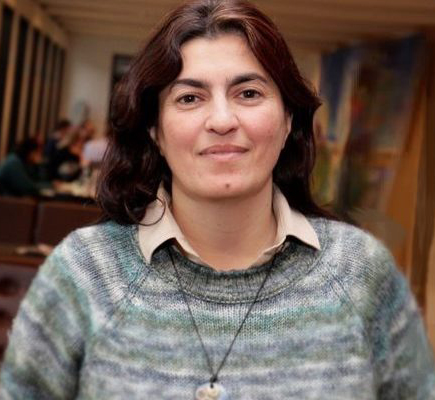By Dr. Yevgenya Paturyan
 I feel no hunger, but for some reason, I constantly feel thirsty.
I feel no hunger, but for some reason, I constantly feel thirsty.
I just seem to be unable to get rid of that sense of dry mouth.
I remind myself to eat, but I cannot taste the food.I look at the watch and tell myself I have 15 minutes to grieve and then I have a class.
I thank COVID for the lockdown because on Zoom students won’t see what my face and eyes really look like. I can fake calmness for them. To an extent.
I can’t teach but I can be there for them, to bear witness to their grief, to walk them gently through their anger, hurt, confusion…
And then I quietly grieve again.
And then I take care of myself so that I can be there for my students again. I remind myself to breathe, to eat, to drink.
I go to bed hoping for a dreamless night and wake up feeling just as tired.
My daily to-do list has two points: 1. Take care of myself; 2. Take care of at least one Armenian in pain…
Don’t ask me how I am. Don’t ask me to think, to analyse, to reflect. Just grieve with me. Grieve for the lives lost, for an entire generation lost to hope, faith. My beloved Independence Generation, the dreamers, the makers of the Velvet Revolution… Somehow I have to bring them back from the brink. They feel betrayed by their own government, betrayed by the international community.
Grieve for Armenia with me. We have a nation to heal. This is the first stage, the darkest stage.
There is no military solution, they said. All of those leaders of world powers, all of those international institutions… Oh but there is. It was just imposed on us. How do I explain this to students? How do I explain this to myself? To my friends and colleagues?
Don’t ask me what is right, what is fair.
Just grieve with me for a moment, for my country, for my people.
This piece is part of the Voices on Karabakh collection where a select group of scholars, intellectuals, and artists contribute observations on the war in and for Karabakh. It’s an attempt to make sense of this time and this region.
















